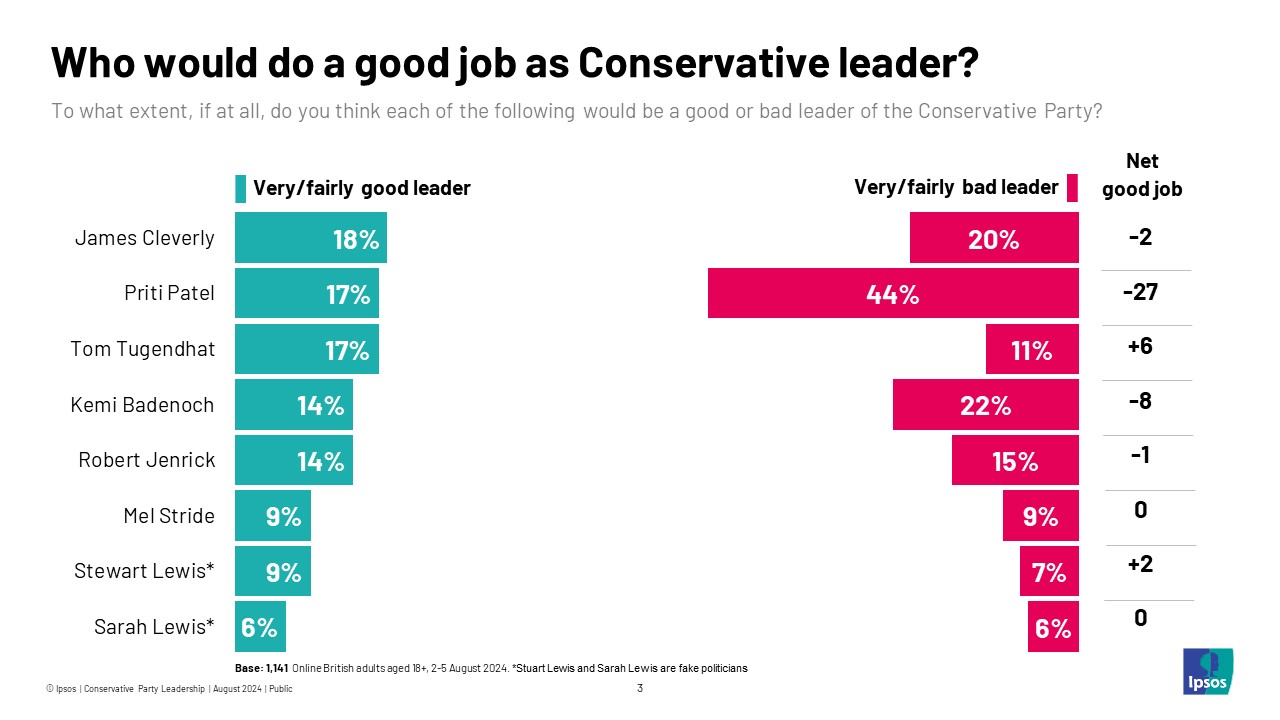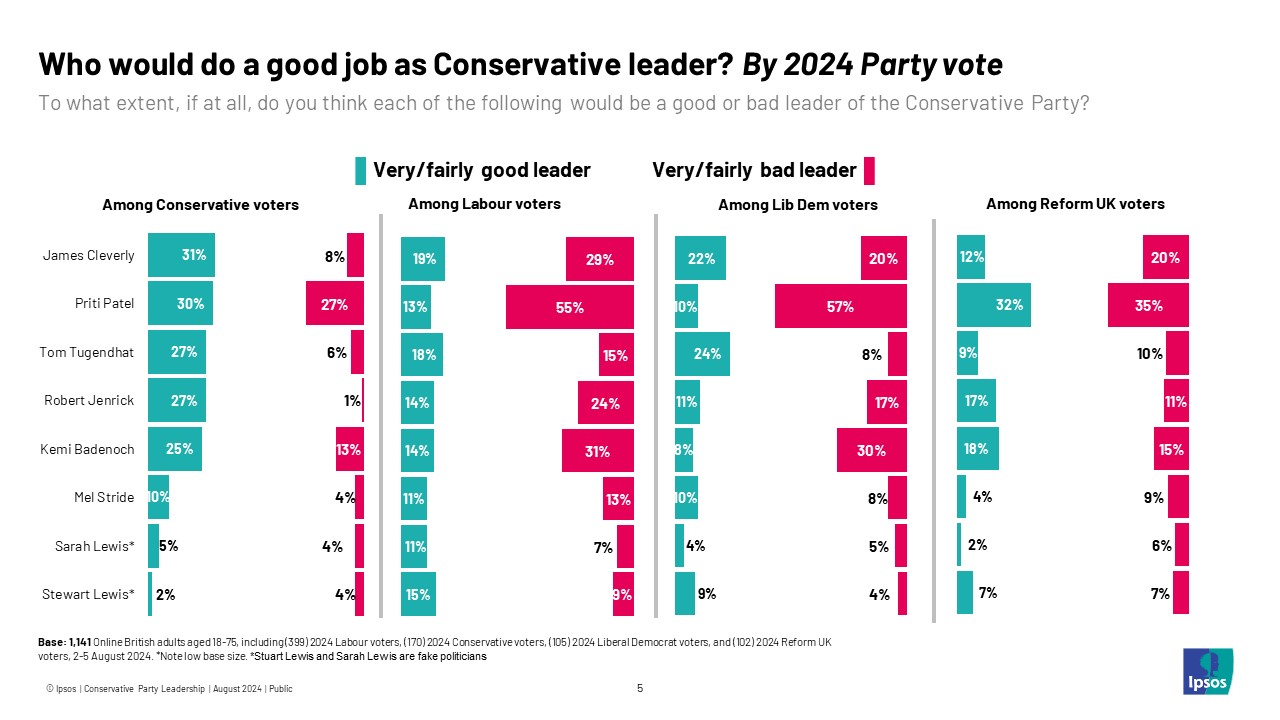James Cleverly tops list of who would make a good Tory leader – but 3 in 5 Britons say they don’t care
New polling by Ipsos, taken August 2-5, has examined attitudes towards the current race to become leader of the Conservative party.
Shadow Home Secretary James Cleverly narrowly leads, with 18% of Britons believing he would do a good job. Priti Patel and Tom Tugendhat follow close behind at 17% each. However, 44% say that Priti Patel would do a bad job, giving her a net approval rating of -27 – the lowest of any candidate.

When broken down by referendum vote, Tom Tugendhat leads among Remain voters, with 21% saying he would do a good job. Priti Patel is the choice of Leave voters, with 27% saying she would do a good job. However, 35% say she would do a bad job, once again giving her a negative approval rating (net -8).
James Cleverly and Priti Patel are neck and neck among those who voted Conservative on July 4th, with 31% and 30%, respectively, believing they would do a good job. However, once again Priti Patel is a much more polarising figure, with 27% saying she would do a bad job (compared with 8% who say Cleverly would do a bad job). Tom Tugendhat and Robert Jenrick follow closely behind, with 27% each saying they would do a good job.

None of the candidates for Conservative leader are well known by a majority of the British public at this point. Priti Patel is the candidate people are most familiar with – 45% say they know a great deal or a fair amount about her, followed by 26% for James Cleverly and 24% for Kemi Badenoch.
In this context, it is perhaps unsurprising that one in four say they do not know who they would prefer to be the next Conservative party leader. A further 34% say they do not favour any of the current candidates. Further, 62% say they do not personally care very much or at all who becomes the leader – including 36% of Conservative voters.
When asked what difference endorsements from different political figures might make to the candidates’ chances, two thirds of Britons (65%) say that backing from Liz Truss would give the candidate a worse chance of winning. This compares with 46% who say that an endorsement from Nigel Farage would have a negative impact on a candidate’s chances, and 44% for Boris Johnson. David Cameron is the only one of the political figures asked about whose endorsement the public, on balance, felt might have a positive impact (albeit only just – 32% said it might make their chances better and 31% worse).
Commenting on the findings, Trinh Tu, UK Managing Director, Public Affairs said:
This new poll suggests a high level of public apathy about the Conservative leadership race. James Cleverly, Priti Patel, and Tom Tugendhat emerge as early front runners, with former Home Secretary Priti Patel appearing to be the most divisive figure. However, a significant portion of Britons are unfamiliar with the main candidates and say they do not care very much about who will emerge as the winner.
Technical note
Ipsos interviewed a representative sample of 1,091 adults aged 18-75 across Great Britain. Polling was conducted online between 2-5 August 2024. Data are weighted to match the profile of the population. All polls are subject to a wide range of potential sources of error.






